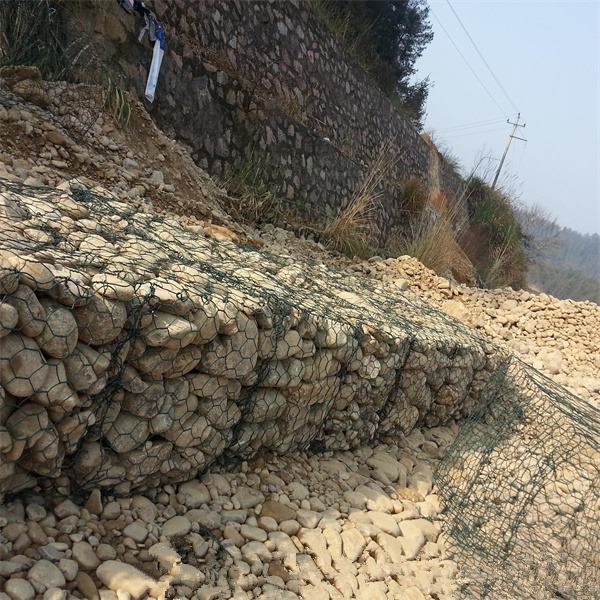aug . 09, 2024 20:50 Back to list
Erosion Control Solutions from Leading Manufacturers of Durable Gabion Baskets for Landscape Protection
Erosion Control with Gabion Baskets Manufacturers and Their Role
Erosion control has become an urgent concern in the face of climate change, increased rainfall, and urbanization that disrupt natural land structures. One effective solution to this problem is the use of gabion baskets, which are wire mesh containers filled with rocks or other materials, designed to stabilize slopes, prevent flooding, and protect soil from erosion. This article will explore the role of gabion basket manufacturers in the erosion control landscape.
Understanding Gabion Baskets
Gabion baskets are versatile structures that can be used in a variety of applications, from constructing retaining walls to creating decorative elements in landscaping. They consist of welded or woven wire mesh, which is filled with stones, gravel, or other types of aggregate. These baskets are typically stacked in layers to form a solid structure that can withstand harsh weather conditions while providing support to vulnerable areas. The primary advantage of gabion baskets is their permeability, allowing water to flow through while capturing sediment, thus effectively reducing erosion.
The Importance of Manufacturers
Manufacturers of gabion baskets play a critical role in ensuring the effectiveness and durability of these structures. They are responsible for the design, production, and distribution of gabion baskets, adhering to quality standards that guarantee their performance in various environmental contexts. Here are several ways manufacturers contribute to erosion control efforts
1. Quality Materials Leading manufacturers use high-quality, durable materials designed to resist corrosion and withstand heavy loads. This ensures that the gabion baskets remain intact and effective over time, even in challenging conditions.
2. Custom Solutions Erosion control projects often have unique requirements depending on the geographical and environmental features of the area. Manufacturers often offer customization options, allowing clients to request specific sizes, wire types, and filling materials that best suit their needs.
3. Technical Support Many gabion basket manufacturers provide technical assistance to engineers and contractors embarking on erosion control projects. This support includes design recommendations, installation guidance, and advice on best practices for maximizing the effectiveness of gabion baskets.
erosion control gabion baskets manufacturers

4. Sustainability Initiatives As the importance of sustainable practices grows, many manufacturers are adopting eco-friendly approaches in their production processes. This may involve sourcing recycled materials for the wire mesh or promoting the use of local stones to minimize transportation emissions. Such strategies help to align erosion control efforts with broader environmental goals.
Choosing the Right Manufacturer
When selecting a gabion basket manufacturer, several factors should be considered
- Reputation Manufacturers with a solid reputation in the industry often provide high-quality products and reliable service. Checking reviews and testimonials can provide insight into their track record.
- Product Range A diverse product offering can indicate a manufacturer's capability to handle different erosion control needs, from small residential projects to large-scale infrastructure developments.
- Compliance with Standards Ensure the manufacturer adheres to local and international standards for building materials. This compliance is indicative of their commitment to quality and safety.
Conclusion
Gabion baskets represent an effective and environmentally friendly solution to erosion control challenges. The role of manufacturers in this process cannot be underestimated, as they supply the essential materials and expertise needed to implement these structures successfully. By choosing the right manufacturer, stakeholders can significantly enhance the effectiveness of their erosion control efforts, contributing to the protection of valuable land and assets. With the growing need for sustainable solutions, gabion baskets are poised to play an increasingly important role in the future of erosion control.
-
Why PVC Coated Gabion Mattress Is the Best Solution for Long-Term Erosion Control
NewsMay.23,2025
-
Gabion Wire Mesh: The Reinforced Solution for Modern Construction and Landscape Design
NewsMay.23,2025
-
Gabion Wall: The Flexible, Seismic-Resistant Solution for Modern Landscaping and Construction
NewsMay.23,2025
-
Gabion Wall Solutions: The Durable, Decorative, and Affordable Choice for Every Landscape
NewsMay.23,2025
-
Gabion Basket: The Durable and Flexible Alternative to Traditional Retaining Walls
NewsMay.23,2025
-
Gabion Basket: The Proven Solution for Slope Stability and Flood Control
NewsMay.23,2025
-
Versatility of Chain Link Fence Gabion
NewsMay.13,2025






